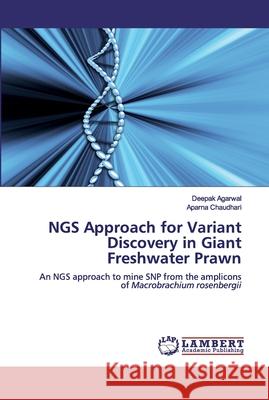NGS Approach for Variant Discovery in Giant Freshwater Prawn » książka
NGS Approach for Variant Discovery in Giant Freshwater Prawn
ISBN-13: 9786200440051 / Angielski / Miękka / 2019 / 88 str.
Amongst farmed crustaceans, the giant freshwater prawn Macrobrachium rosenbergii was until recently one of the major species with high commercial value. Lately, it has lost popularity due to diseases and differential growth of males on account of social hierarchy. The species can reacquire its former preferred status if it is genetically improved for growth and disease resistance. Selective breeding is greatly facilitated by marker-assisted selection (MAS). Single nucleotide polymorphisms (SNPs) offer the finest resolution possible for a marker map (a single nucleotide change), are co-dominant, bi-allelic and generally abundant in populations with a low mutation rate. DNA sequencing through NGS platforms is regarded as the most cost-effective approach. In this study, SNP mining was carried out in the transcribed sequences of M. rosenbergii available in GenBank, NCBI. Wild specimens were collected from different water bodies. Primers were designed to amplify coding (CDS) and sequenced the amplicons on GS-FLX 454 and Ion torrent platforms. 173 SNPs were detected across populations. This approach for mining SNPs in reported sequences has been used by us for the first time.











